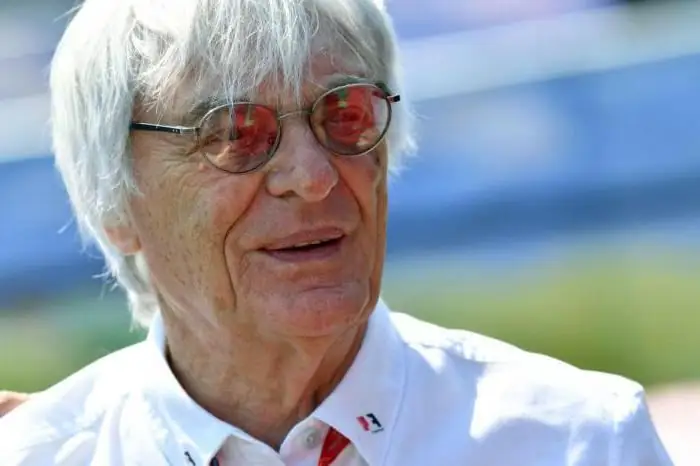- Author Henry Conors conors@fashionrebelsbook.com.
- Public 2024-02-12 02:47.
- Last modified 2025-01-23 09:07.
Friedrich Gustav Emil Martin Niemeller was born on January 14, 1892 in Lipstadt, Germany. He was a famous German pastor who adhered to the religious views of Protestantism. In addition, he actively promoted anti-fascist ideas during World War II and advocated for peace during the Cold War.
Beginning of religious activities
Martin Niemeller was educated as a naval officer and commanded a submarine during the First World War. After the war, he commanded a battalion in the Ruhr area. Martin began studying theology between 1919 and 1923.

At the beginning of his religious activities, he supported the anti-Semitic and anti-communist policies of the nationalists. However, already in 1933, pastor Martin Niemeller opposed the ideas of the nationalists, which is associated with the rise of Hitler to power and his totalitarian policy of homogenization, according to which it was necessary to exclude employees of Jewish roots from all Protestant churches. Due to the imposition of this "Aryanparagraph" Martin, together with his friend Dietrich Bonhoeffer, creates a religious movement that strongly opposed the nationalization of German churches.
Arrest and concentration camp
For his opposition to Nazi control of religious institutions in Germany, Martin Niemeller was arrested on July 1, 1937. On March 2, 1938, the tribunal convicted him of anti-state actions and sentenced him to 7 months in prison and a fine of 2,000 German marks.

Because Martin was detained for 8 months, which exceeded the term of his conviction, he was immediately released after the trial. However, as soon as the pastor left the courtroom, he was immediately arrested again by the Gestapo organization, subordinate to Heinrich Himmler. This new arrest was most likely due to the fact that Rudolf Hess considered the punishment for Martin too favorable. As a result, Martin Niemeller was imprisoned in the Sachsenhausen and Dachau concentration camps from 1938 to 1945.
Article by Lev Stein
Lev Stein, Martin Niemeller's prison companion who was released from the Sachsenhausen camp and immigrated to America, wrote an article about his cellmate in 1942. In the article, the author recounts Martin's quotes that followed up on his question about why he initially supported the Nazi party. What did Martin Niemeller say to this question? He replied that he often asks himself this question and every time he does it, he regrets his act.

He alsotalks about Hitler's betrayal. The fact is that Martin had an audience with Hitler in 1932, where the pastor acted as an official representative of the Protestant Church. Hitler swore to him to protect the rights of the church and not to issue anti-church laws. In addition, the people's leader promised not to allow pogroms against Jews in Germany, but only to impose restrictions on the rights of these people, for example, take away seats in the German government, and so on.
The article also says that Martin Niemeller was dissatisfied with the popularization of atheist views in the pre-war period, which were supported by the parties of social democrats and communists. That is why Niemeller had high hopes for the promises that Hitler gave him.
Post-World War II activities and merit
After his release in 1945, Martin Niemeller joined the ranks of the peace movement, among whose members he remained until the end of his days. In 1961 he was appointed president of the World Council of Churches. During the Vietnam War, Martin was instrumental in advocating for an end to it.
Martin contributed to the Stuttgart Declaration of Guilt, which was signed by German Protestant leaders. This declaration acknowledges that the church did not do everything possible to eliminate the threat of Nazism even in the initial stages of its formation.

The Cold War between the USSR and the USA in the second half of the 20th century kept the whole world in suspense and fear. At this time, Martin Niemeller distinguished himself by his activity for keeping the peace.in Europe.
After Japan's nuclear attack in 1945, Martin called US President Harry Truman "the world's worst assassin since Hitler." Martin's meeting with North Vietnamese President Ho Chi Minh in the city of Hanoi at the height of the war in that country also caused strong indignation in the United States.
In 1982, when the religious leader turned 90, he said that he began his political career as a hardline conservative and now he is an active revolutionary, and then added that if he lived to be 100 years old, then perhaps becomes an anarchist.
Disputes about the famous poem
Starting in the 1980s, Martin Niemeller became well known as the author of the poem When the Nazis Came for the Communists. The poem tells about the consequences of a tyranny that no one opposed at the time of its formation. A feature of this poem is that many of its exact words and phrases are disputed, since it was mostly written down from Martin's speech. Its author himself says that there is no question of any poem, it is just a sermon that was delivered during Holy Week in 1946 in the city of Kaiserslautern.

It is believed that the idea of writing his poem came to Martin after he visited the Dachau concentration camp after the war. The poem was first published in print in 1955. Note that the German poet Bertolt Brecht is often mistakenly named as the author of this poem, and not Martin Niemeller.
When they arrived…
We give below the most accuratetranslation from German of the poem "When the Nazis Came for the Communists".
When the Nazis came to take the communists, I was silent because I was not a communist.
When the Social Democrats were imprisoned, I was silent because I was not a Social Democrat.
When they came looking for union activists, I didn't protest because I wasn't a union activist.
When they came to pick up the Jews, I didn't protest because I wasn't Jewish.
When they came for me, there was no one left to protest.
The words of the poem clearly reflect the mood that reigned in the minds of many people during the formation of the fascist regime in Germany.






